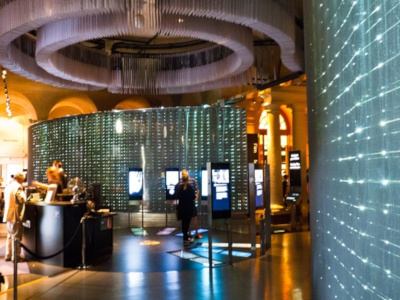Science, Awards and Reproducibility
Posted on 16 November 2018
Science, Awards and Reproducibility
 Image courtesy of Ricardo Ramírez Gisbert.
Image courtesy of Ricardo Ramírez Gisbert.By Raniere Silva, Community Officer, Software Sustainability Institute
As researchers, we have our own motivation to spend years digging into something until we, hopefully, find something new. Independently from our motivation, it's always good to receive recognition for our work, specially in the form of a famous award like the Nobel prize. During the announcement of the Sveriges Riksbank Prize in Economic Sciences in Memory of Alfred Nobel 2018, one of the awardees, Paul M. Romer, highlighted the need to communicate science clearly, not only by using simple words and language if you’re writing for a general audience, e.g. a popular science book, but also by embracing reproducibility when writing to researchers peers.
When answering a question from the Swedish television, he said:
"Science is the most important social system humans have ever developed but part of how science works is by criticism and challenge. There's no authority who can shut things down. There's no Supreme Court. Different individual scientists say what they think is is right and when they think their colleagues are wrong they they will say that (...) explaining results like the Pythagorean theorem that pair of mentioned so math can be used very productively in a very helpful way but sometimes people use it in a way which creates a kind of a fog of misunderstanding and part of what I was pushing for and, I think I you know, everyone needs to keep pushing for is that we all try as hard as we can to communicate communicate clearly because this is part of what pairs presentation brings out. Is that knowledge. Is valuable only if it's communicated to other people and it won't be accurately communicated if people are vague or confusing in their communication so is there still some in our science of course as logins our communication. On everything there's always rumors. Could do better and it's part of my job and help push that we all do better."
We’re very happy to see reproducibility mentioned in the news, and we hope that in the coming years we will see a shift towards a more open science.
Extra: Paul M. Romer's blog has two posts related with science communication that worth a look: "Clear and Precise Scientific Communication" and "Jupyter, Mathematica, and the Future of the Research Paper".
If you wish to discuss this post with us, send us an email or contact us on Twitter @SoftwareSaved.
